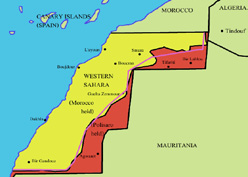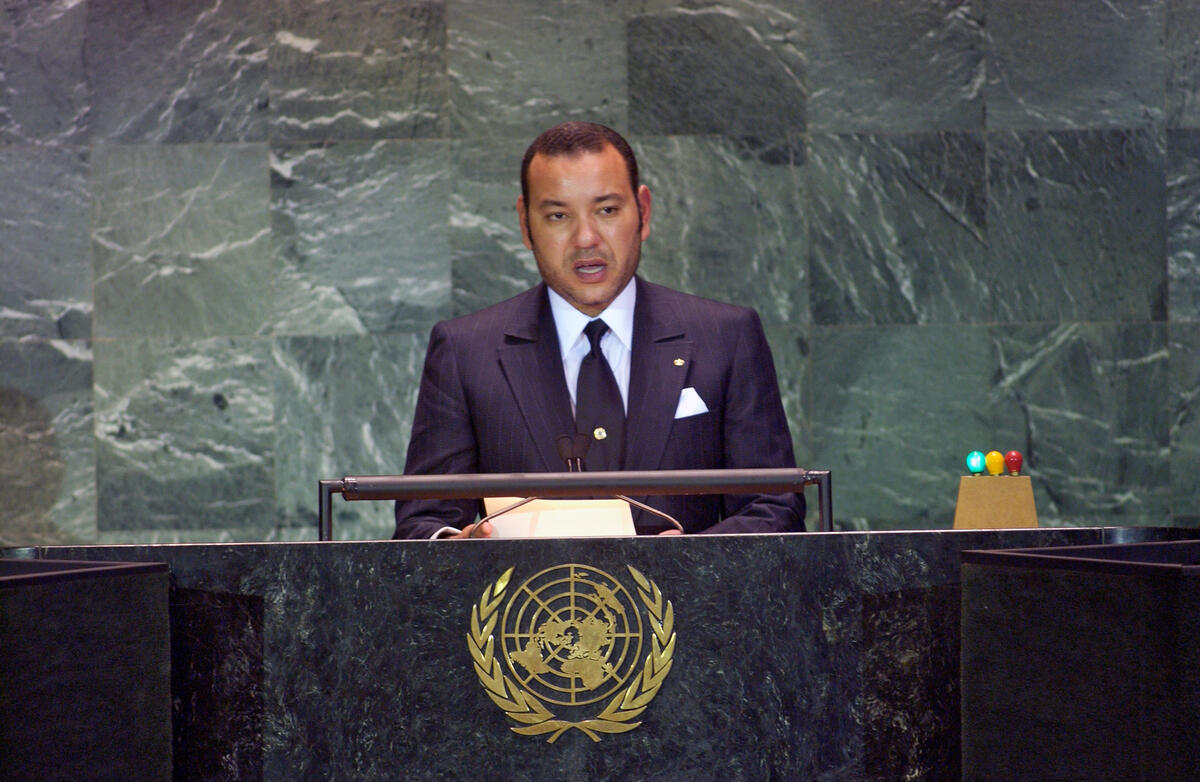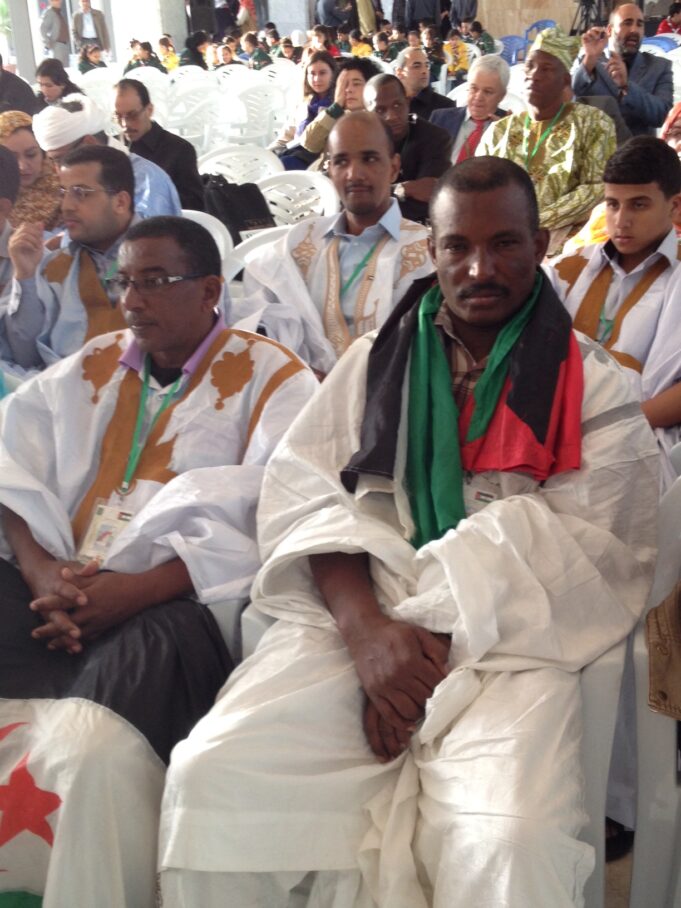As President Joseph Biden has been reversing policies of his predecessor, questions are floating about what his administration will do concerning the issue of Western Sahara, a disputed territory in North West Africa where conflict has recently escalated into war. The little-known conflict was exacerbated in the final weeks of the Donald Trump administration by an unprecedented decision to recognize a sovereign claim to the territory by the Kingdom of Morocco.

The payoff in exchange was Morocco signing the Abraham Accords of Arab nations normalizing relations with Israel.
“The Trump administration basically threw kerosene on a fire and then walked away from the fire,” said Bill Fletcher, Jr., past president of Trans Africa Forum. “The Trump administration as part of this so-called Abraham Accords bought off Morocco by supporting Moroccan sovereignty over Western Sahara,” said Mr. Fletcher.
Attaching recognition of Rabat’s (Morocco’s capital) claim to the territory as a tradeoff in the Washington brokered accords further exacerbated the tensions that has been raging for 46 years.
The recognition sparked condemnation of America.
“It was an illegal international business transaction,” remarked Mouloud Said, the Polisario Front representative to Washington. The Polisario Front is the group that has been at war with Morocco over the years for the territory.
Speaking to The Final Call from Spain, Mr. Said argued, the U.S. has no rights to the Western Sahara to make it a part of any deal. Although Mr. Trump did not own the territory, Mr. Said quipped, he saw it from the eye of a real estate mogul, not a geopolitical leader.
Additionally, media reports said the deal included an alleged $3 billion investment package for Moroccan banks, hotels and a renewable energy company owned by Morocco’s King Mohammed VI, said the New York Times.
The arms deal with Morocco is compared to the nearly $23.4 billion arms deal the U.S. gave the United Arab Emirates upon its inking the same Accords. The recognition waxed against the official positions of the UN, the African Union, European Union, and the International Court of Justice.
The Dec. 10 decision came weeks into the military action spurned by a Moroccan cease-fire violation. The stakes, say African observers, is the potential unraveling of the broader region, already struggling against insurgencies and migrant trafficking. Critics say taking Morocco’s side disqualified the U.S. as a credible broker on the Western Sahara issue.
The issue is virtually unknown in America that has a history of chiding nations for undemocratic practices. In the case of Morocco, until Mr. Trump recognized Morocco’s illegal land claim, America maintained relations with a noncommittal posture toward the contradiction.

UN7780162
“It’s a real viable test for democracy,” said Linn Washington, an investigative reporter who traveled to Western Sahara.
“They (Morocco) have subverted democracy for all of these decades,” Mr. Washington said.
He pointed out that Morocco through strong lobbying efforts has garnered the support of many Democrats including Black lawmakers to certify its illegal occupation of the Western Sahara. “And that’s a travesty,” he lamented.
History of problem
Morocco possesses the “last colony in Africa” with its occupation of the Western Sahara, which it long claimed since 1957 as its southern province. Once colonized as the Spanish Sahara, the area has been in dispute since Spain relinquished it in 1975.
When Spain left, Morocco laid claim to the area triggering a resistance movement by the indigenous Sahrawi people refusing annexation of their lands. The Sahrawis make up 500,000 people, with 170,000 living in UN administered refugee camps in Algeria and who fled a vicious independence war against Morocco that began in 1976.
The resistance is led primarily by the Algerian backed Polisario Front, or The Popular Front for the Liberation of Saguia el-Hamra and Río de Oro. In February 1976, the Polisario Front declared Western Sahara to be the Sahrawi Arab Democratic Republic (SADR), with the support of allies that included Algeria.
The SADR is recognized as a sovereign nation and is a founding state and member of the African Union. The SADR controls 20 percent of its territory—mostly barren desert, while 80 percent is controlled by Morocco.
The Polisario has engaged an armed independence struggle against Morocco from 1975 until a United Nations brokered ceasefire was reached in 1991.
The UN installed a peacekeeping force called the UN Mission for the Referendum in Western Sahara (MINURSO) charged with monitoring the truce and coordinating the referendum on self-determination in the Western Sahara. The vote was never convened because the Moroccan government and the Polisario Front failed to reach an agreement on issues including who constitutes an eligible voter. The question was complicated by Morocco engaging in redistributing upwards of 350,000 Moroccans to the area in efforts to control the referendum’s outcome, say observers.
In early November of last year, the Moroccan military crossed an agreed land barrier to attack peaceful Sahrawi demonstrators. As a result, on November 15, 2020 the Polisario Front ended the three-decade cease-fire agreement. That was all Sahrawi could take, said a representative of the Polisario Front.
“We told them ahead of time, that in the event that they do so, we are going to respond automatically by resuming the war and by disassociating ourselves from any commitment to the cease-fire,” said Mr. Said. He explained since the violation, the Polisario Front has been attacking every Moroccan position in Western Sahara, day and night. “The war, it’s going on right now,” he said.
As friction continues escalating, Mr. Said added the Polisario are still open for talks, but will continue fighting until a final solution is agreed upon.
“We can have the negotiation, but there is no way we’re going to have another cease-fire.”
The cease-fire was initially brokered by the United Nations and the Organization of African Unity—now the African Union with the idea of making way for a referendum on self-determination, which has yet to happen.
“After 29 years, the United Nations has proven that they are not capable of fulfilling its commitment to give to the Sahrawi their rights for self-determination,” said Mr. Said.
He said specifically the UN Security Council is to blame for protecting Morocco’s interest under the influence of France that supports Morocco, even more so than America.
Why Morocco wants Western Sahara
“Morocco has a disease of expansionism,” charged Mr. Said. The sovereign claim to the Western Sahara is part of a history of Morocco claiming vast territories extending into Mauritania, Algeria, and Mali.
Perhaps the most lucrative reasons are the resources in the Western Sahara. According to the Western Sahara U.S Geological Survey, the area holds over 72 percent of all phosphate rock reserves worldwide used to make organic fertilizer, and its offshore fisheries. According to a Research and Markets press release, the global phosphate fertilizer market was worth $65 billion in 2019 and expected to be $84 billion by 2023.
In their ongoing struggle, Mr. Said told The Final Call he is optimistic the U.S. will return to the popular position. “It’s our hope … seeing the background of the new administration … their statements that they will be supporting international legality … we’re optimistic the U.S. will go back,” said Mr. Said.
The Polisario with members of the global community is calling on the Biden administration to reverse the decision. A cross section of people in the U.S. including former National Security adviser James Baker, John Bolton and a bipartisan list of lawmakers have condemned the Trump era decision.
Solidarity with Black America
Mr. Said told The Final Call that the Polisario Front wants their struggle to be known and is desirous of solidarity with the Black community in America. The way it helped bring victory in South Africa. “We are very grateful for the role they played in the liberation of Southern Africa,” he said.
Mr. Said reasoned Black American support of the anti-Apartheid movement to end White settler rule was vital and made a difference. The Southern African nations today are the strongest supporters of the Western Sahara issue. “South Africa is one of our biggest allies,” he said.
Mr. Washington agrees that Black America should be involved in the issue of Western Sahara.
“For this to get the credibility that it needs in terms of the eyes of getting something changed around, there needs to be a similar kind of movement that brought down apartheid,” Mr. Washington said. “I dare say … if not at the leadership of it, but at least fully supportive of it, should be the Black Caucus,” he added.













